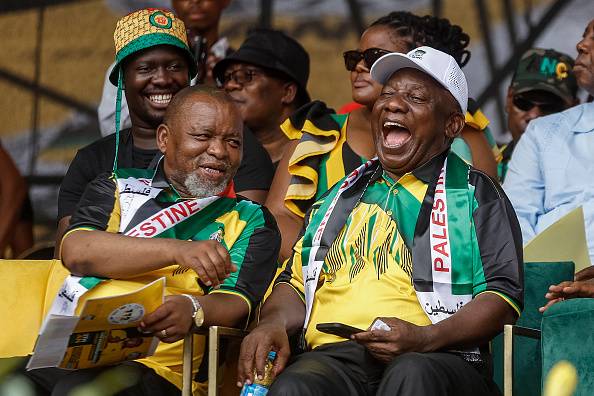Find out how South Africa is fighting corruption and state capture, and find practical paths to transparency, accountability, and good governance.
Corruption is of a global phenomenon, but in South Africa, it assumes unique and deeply complex features— especially in the shadow of what has come to be known as state capture. This is a tale of the last two decades, whereby malfeasance regarding public funds, institutional influence, and irregular public procurement undermined public trust and shrugged development
In the face of these challenges, South Africa’s response has shown resilience through commissions of inquiry, civil society activism, and an independent judiciary. This article looks at the roots of the corruption crisis
the impact of state capture, and the promising paths that are emerging toward clean and accountable governance.
What is state capture? It is the mode of corruption whereby an individual or a network, for an undue benefit and in most cases by manipulating laws, rules of law, appointments, or public contracts, etc., does influence public institutionalism and decision-making.
In South Africa, this concept became global when during the presidency of Jacob Zuma, series of inquiries revealed how a private family— the Guptas—were allegedly exercising undue influences over ministries, state-owned enterprises, and strategic decisions.
By 2019, the commission of inquiry, known as the Zondo Commission, had started bringing to light extensive details of how key state institutions were breached. More than 300 witnesses appeared, and the final reports ran to thousands of pages — recording years of systematic manipulation, financial abuse, and institutional erosion.
Cliché aside, the cost of corruption
The real effects of corruption on the South African economy and society have been:
• It is reportedly tens of billions that Eskom, the energy supplier, lost due to irregular contracts and inflated tenders, which is a very big part of how state capture happened.
• Mismanagement and more bad deals meant that Transnet and South African Airways (SAA) lost billions more for the state.
• A 2021 estimate by the Special Investigating Unit (SIU) said that between 2009 and 2019 over 500 billion rand may have been the cost because of corruption.
• The damage to service delivery is much wider than finance – delays to infrastructure, breakdown in public procurement systems and the loss of skilled public sector professionals.
More than just numbers, these figures are lost opportunities for education, healthcare, infrastructure, and economic growth.
Institutional Response: Moving towards Accountability
The institutions of South Africa were not quiet. In response to the state capture and general malaise of corruption, several key actions were taken:
1. The Zondo Commission
Chaired by Chief Justice Raymond Zondo, this commission completed its work in 2022. In its final reports it furnished comprehensive recommendations that among many other things included prosecutions of all who were involved in the corruption, reforms to the public procurement laws, and better oversight of state entities.
The public hearings let South Africans see right into the wheels of corruption and helped bring the nation back to life with talk about being honest and responsible.
The NPA came back to life with the birth of an Investigative Directorate aimed at high-level corruption. Since then, many former directors and public officials have been charged, although many high-profile cases are still in the pipeline because of the complexity of the evidence and the number of court proceedings.
2. Changes In Auditor General Reforms
The Auditor General of South Africa has been given expanded accountability powers. This includes issuing binding corrective actions where irregularities are detected – a significant step towards ensuring better monitoring and protection of public funds.
An active civil society watchdog is one of South Africa’s greatest strengths in the war on corruption. These would involve Corruption Watch, OUTA, amaBhungane, and a series of others through uncovering malfeasance by public works and government officials?
With whistleblowers often taking great personal risks, they have been able to share some crucial evidence that has helped solidify some of these cases.
The public’s participation in these efforts shows that transparency is not only an institutional objective but a societal objective.
Toward a cleaner government: what should happen?
Though some steps have been taken, much of the rest will depend on converting the recommendations into real, measurable change. Here are some critical avenues:
1. Strengthening oversight institutions
Government should adequately fund public oversight bodies, such as the Ombudsman, Auditor General, and Parliamentary Committees, and ensure their independence without any political influence.
2. Bring public procurement systems up to date
Digital platforms can make public procurement more transparent. Platforms such as eTender have started this process, but implementation needs to be expanded and enforced across departments.
3. Legal and policy reform
Whistleblower protection laws need to be accompanied by transparency in political funding and strengthened ethical codes of conduct for public officials to reduce the risk of corruption and promote clean governance.
4. Professionalise the public sector
The prevention of future takeovers and the delivery of high-quality services require, as a minimum, the following: merit-based appointments, capacity building, and the depoliticisation of public institutions.
Though South Africa has little reason to smile in the shadow of its recent history, there is much for it to be optimistic about. The country’s democratic institutions are, as it were, now buttressed by strong civil society and free press. More importantly, there is public demand for honesty, accountability and transparency. The process of government cleanliness is not quick; it’s not easy, but it’s in progress. Every scandal unveiled, every official charged, and every rand recovered is part of a bigger effort to rebuild trust and create a future bright for all South Africans.
